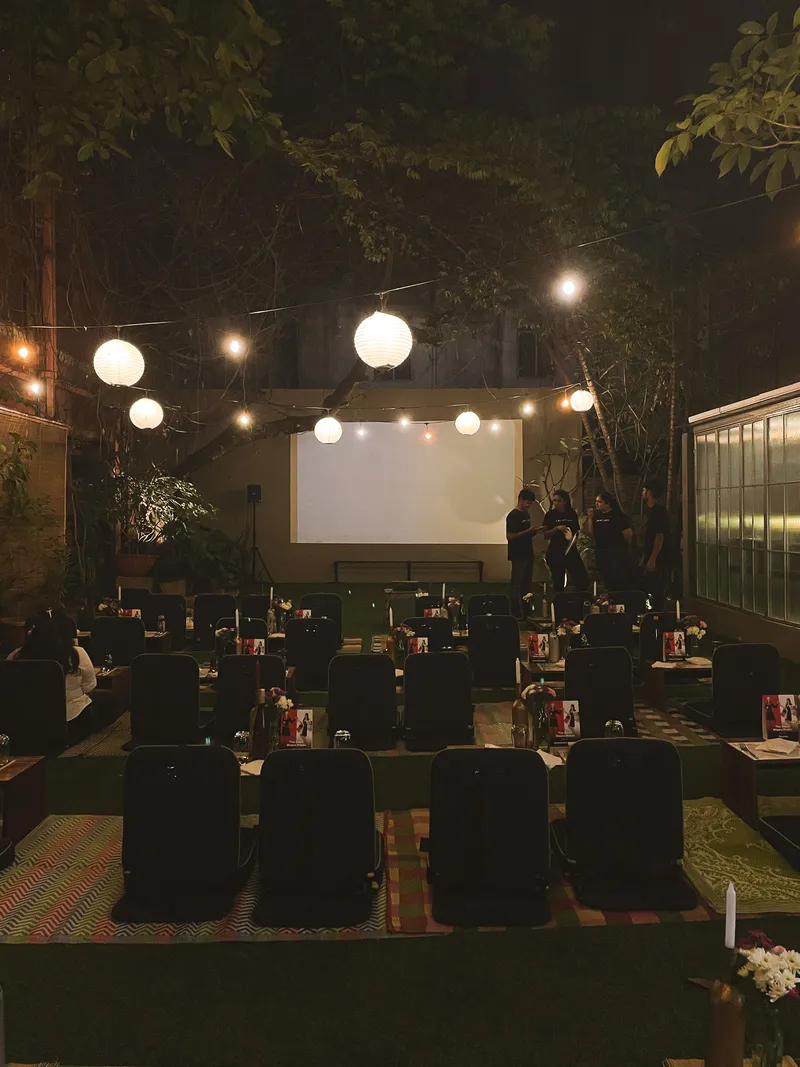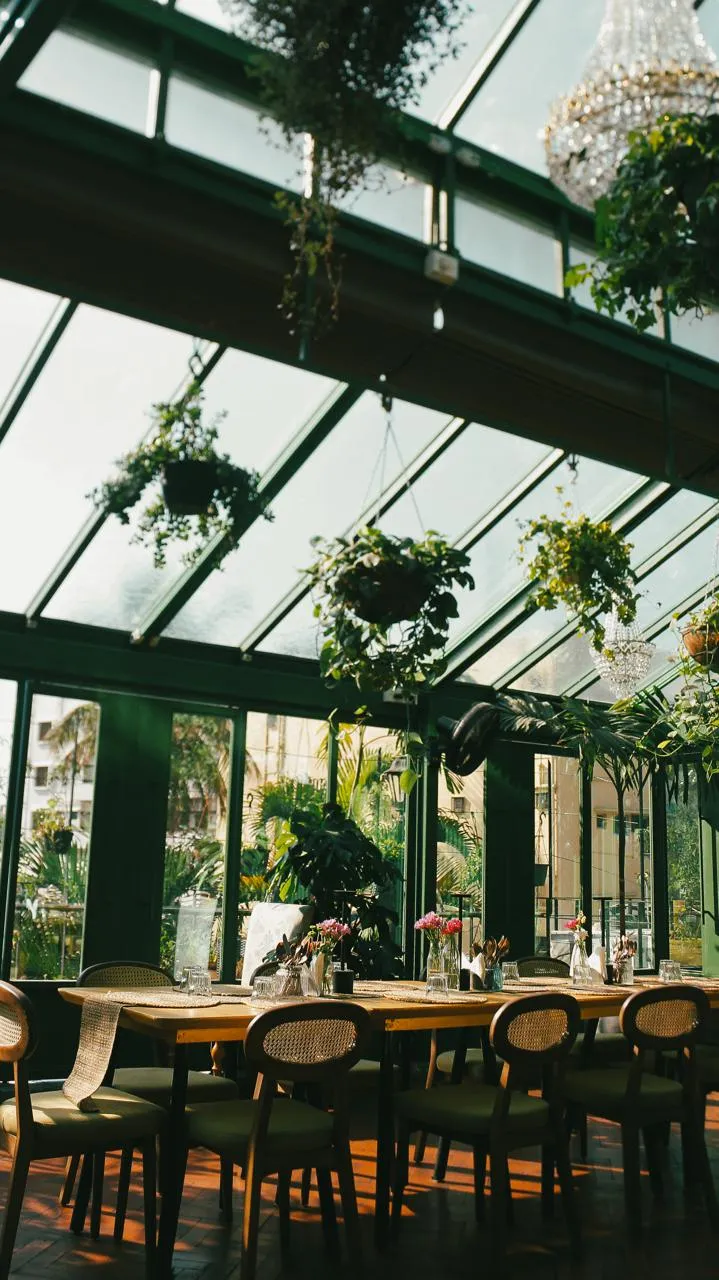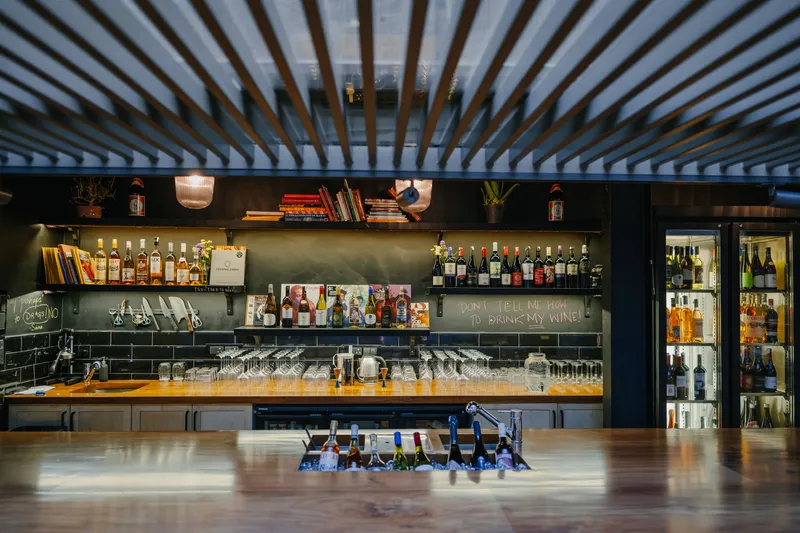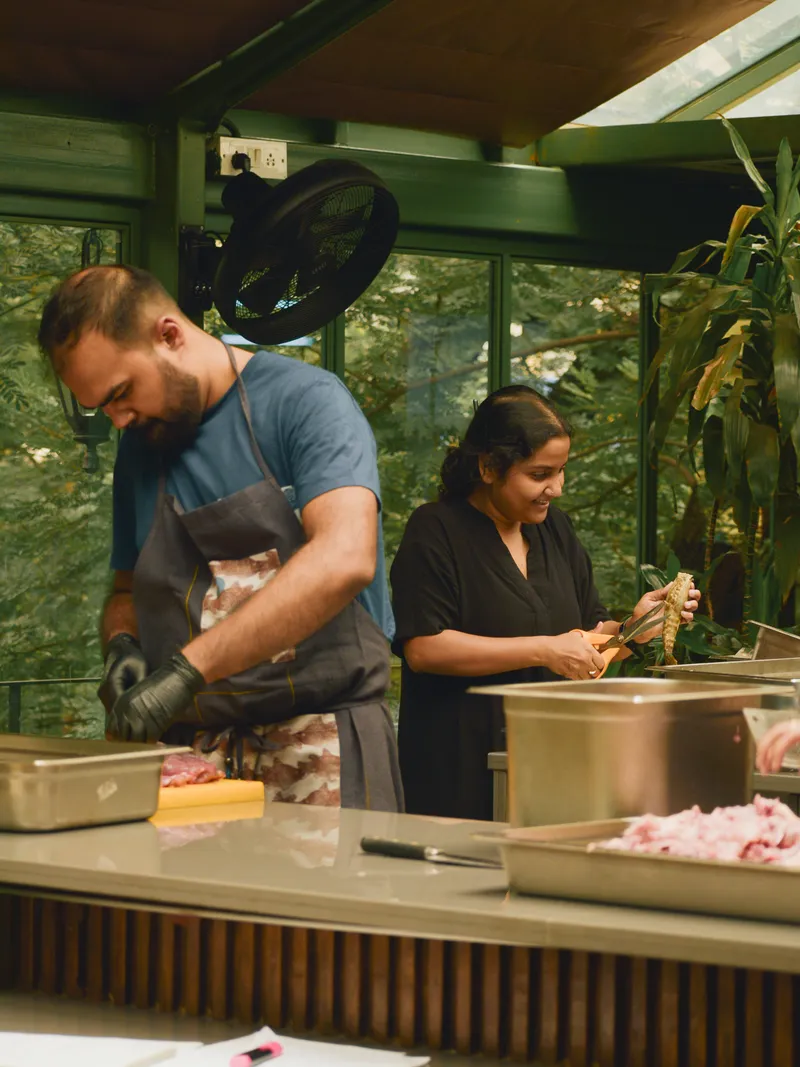A cool incubator for chefs: The Courtyard is shaping Bengaluru’s culinary revolution
At the heart of Bengaluru’s transformation into an F&B hub is The Conservatory at The Courtyard, a community space known for its innovative culinary events, guest chef pop-ups, and unique dining experiences.
“We might not have the heritage culture that a lot of other cities (Mumbai, Delhi, Kolkata, Chennai) may have. What we have is urban culture… What Bengaluru does today, India will do tomorrow,” Akhila Srinivas, the founder and architect behind The Courtyard, tells YS Life.
Following the pandemic, Bengaluru’s F&B (food and beverage) landscape experienced a dynamic shift—marked by the rise of independent brands, a surge of craft beverages, and a growing demand for experiential dining. At the heart of this transformation is The Courtyard—a community space redefining Bengaluru’s food culture.
Known for its innovative culinary events, guest chef pop-ups, and unique dining experiences, The Courtyard has become a pivotal platform for chefs nationwide to showcase their talents and push the boundaries of experiential dining.
Today, the community space, set inside Akhila’s grandmother’s 70-year-old bungalow, also houses eminent and reputed F&B joints in the city—Naru Noodle Bar; fuss-free wine bar WIP (Wine In Progress); and the most recent addition to the city’s famous coffee culture, Ajji House by Subko.

Movie nights at The Courtyard
And there’s more. The Courtyard also hosts movie nights under the stars, art workshops, lifestyle pop-ups. Soon it will have a dedicated music bar, a culture that’s losing its importance in Bengaluru, owing to the rise of breweries, Akhila shares.
“The Courtyard, or as it was called ‘The Courtyard community’, is in its true sense a collaborative community. A place where chefs and other professionals could come, cook, and they were supported not just in terms of infrastructure and resources, but also in terms of planning, scheduling, and so much more,” says Chef Kavan Kattuppa of Naru Noodle Bar-fame.
After hosting culinary pop-ups in mid-2021 at The Conservatory, the glasshouse at the terrace of The Courtyard, Kavan went on to open a 20-diners-only restaurant in 2022, serving one of the finest bowls of ramen in the city. Since then, the noodle bar has seen a flurry of interest from diners. It is usually sold out within minutes after it opens for online reservations.
How did this thriving food community come to being? Akhila tells us, while sipping some good-old hot chocolate, as we speak at length, at Subko.
Making culture ‘accessible’
“The Courtyard was built with the idea to make culture accessible… We did not think that this is what it’s (a community) going to end up being,” says Akhila.
Having studied and worked in New York City, Akhila was in awe of how art and culture was accessible in the city.
“You did not have to be very rich, artistic, or culturally aware to experience the nuances of art, music and food, because a lot of that happened at public spaces… I would go to a park to watch a great movie,” she recalls.
She thrived in this environment—for Akhila, a great city is where you “don’t just survive, but thrive.”
Being a thorough ‘Bangalorean’ girl, the urban designer in Akhila always wished to come back home and build something fun and accessible in her city. While her first thought was always to build a community in the city’s existing public spaces—Cubbon Park and Lalbagh—she did not have the patience to go through all the paperwork and ensuing conversations.

Akhila Srinivas, the founder and architect behind The Courtyard
“Whenever we think of going for a play, we had to go to Ranga Shankara (performing arts theatre); for dance performances, we would think of Shoonya (Centre for Art and Somatic Practices); and if I wanted to have a great meal, maybe I need to go to a 5-star where they are hosting a great pop-up… Why is the threshold so high? A lot of people don’t feel that they belong in these places,” Akhila lays down the problem.
“I wanted to build a space that has a low threshold for cultural events, where we approach everything through the lens of culture…even if it’s food, we first think about the cultural aspect of it,” she adds.
Akhila opened the doors to The Courtyard in 2018, kickstarting her community-building project with movie nights.
An incubation centre for chefs
While the courtyard hosted food events too, the major focus was movies, shows, talks, and workshops.
“It was not easy to sell food pop-ups back then; we had to really push and explain what a pop-up was,” she says.
But after the COVID-19 pandemic, OTT picked up and people stopped stepping out of their houses for things they could enjoy from the comfort of their homes. “Something changed, and food became this engine for going out… We started doing food pop-ups, and they sold like hotcakes,” gushes Akhila.
“During COVID-19, a lot of content was consumed around food, and people went back to the kitchen… What happened with movies, the opposite happened with food… The consumption of the culture of food just exploded,” she explains.

Glasshouse-inspired The Conservatory hosts pop-ups
The Courtyard gradually became a place for chefs to hang out at. Chefs including Rhea Aaron, Karan Upamanyu, and Kavan Kattuppa started trying their new menus in a very organic yet informal fashion, at the in-house cafe. In the initial days, The Conservatory also hosted chefs Gautam Krishnankutty and Manu Chandra.
“At the end of the day, we are a community space and we are driven by our audience, and we take them very seriously!” Akhila says.
"Thus, while the first few years were driven by culture—music, dance, and theatre—post the pandemic, food took the front seat. That’s why we felt that it’s not going to work anymore in the ad-hoc way, there needs to be a dedicated space for it.”
Thus, The Conservatory came to being.
Inspired by the glasshouse inside Lalbagh, The Conservatory became sort of an incubation centre for the chefs.
While Chef Kavan opened Naru; a couple of months later, the weekday wine nights transformed into a full-fledged wine bar downstairs—WIP. The weekday wine nights were aimed at changing the narrative around wine—from being a snooty, snobbish and expensive drink to a fun beverage. Similarly, with her pop-ups doing well, Chef Rhea found her calling through Klaa Kitchen, a home-style Goan restaurant in Bengaluru.
“Most of our wines (at WIP) are sold by the glass, because if we tell people to buy the full bottle, then who’s going to drink it? The idea was to make wine accessible and make it a culture,” Akhila explains.
Today, The Conservatory hosts culinary pop-ups every weekend—each different from the previous one—featuring a new chef from across the country. And each time, it manages to get sold-out within a few days, if not hours.
“Nothing happens overnight, and all perceived cool things take time to cultivate, till a point it all seems effortless—something (The) Courtyard, spearheaded by Akhila and her team, has done really well, says Arijit Bose, a celebrated mixologist and the co-founder of WIP and Bar Spirit Forward.

Wine In Progress or WIP at The Courtyard makes wine-drinking fuss-free
“The carefully curated set of events, some of which celebrated great chefs and brought them to the forefront, or created an environment (where) people got to enjoy great food and beverages, made a whole new environment for people like me to thrive and try out new things in the line of wines and beverages. I absolutely love what they have done in a short time and how important The Courtyard is to the F&B landscape of Bengaluru and India,” he adds.
Facilitating the ecosystem
For Chef Karan, The Courtyard has been a playground to experiment with creative and “out-there” menus. “They’ve built a great clientele of diners that are open and excited to try new things, and also give instant feedback on what is working, and what isn’t,” he says.
But beyond the pop-ups, The Courtyard acts as a testing ground for chefs to experiment with their menus before new launches and to seek market feedback before launching a full-fledged outlet in Bengaluru.

Chefs Avinandan and Koyel of Cafe Sienna at work at The Conservatory
For instance, recently, Sienna Cafe travelled all the way from Kolkata to introduce its new menu in Bengaluru, before launching its outlet back home. Similarly, Fireback and Hosa, of the Indian Accent group, came down from Goa for a pop-up in Bengaluru to be sure of their plans before launching outposts in the Silicon Valley.
Interestingly, The Courtyard focuses on placing the chefs under the spotlight, instead of highlighting the venture they are associated with. “We treat them as artists, nobody cares about the brand. When you do that, you are attaching a story to it, there’s the culture aspect associated with it,” explains Akhila.
Today, Bangaloreans—young, experimental, curious, urban, and equipped with disposable income—are pushing the boundaries of The Courtyard. “They are challenging us and asking ‘what’s next?’. And that’s fun… I can only do it here, there are no restrictions (when it comes to food),” she says.
Avinandan Kundu, Head Chef at Sienna Store and Cafe, resonates with this idea. He says the pop-ups in Bengaluru are much more successful than the ones in Mumbai. “We were surprised, people here don’t put any restrictions on us,” he says.
When asked if The Courtyard-model would expand to another location, Akhila says, “I don’t know how and where else The Courtyard would have worked.”
“If this place had roots, the roots would go so deep and so wide because it takes inspiration from Bengaluru. It will be very hard to uproot this from here,” she adds, with an air of finality.
(Disclaimer: The story was updated to correct a factual error)
Edited by Swetha Kannan







